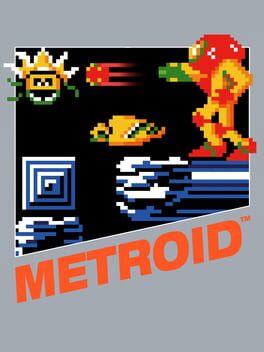Pray for a true peace in space!
I've replayed this with a vague ambition of playing/replaying through the whole main series, polishing off the three that I missed (Corruption, Other M, and Samus Returns). Metroid Dread has me very Metroid-brained at the moment.
It's pretty outstanding how much the first Metroid gets right. Its most genius moment comes at the very beginning, placing an impassable wall to the player's right, and the ability required to pass it to the player's left. Though this is quaint by today's standards, it is brilliant considered in its context, completely obliterating the left-to-right expectations of NES side-scrollers, and serves as an excellent learning moment for establishing what the core of Metroid is.
Other elements worthy of praise include the compositions, which make use of a limited sound chip to create melodic pieces that fluctuate between adventurous and foreboding. The art-design works well to establish an otherworldly vibe, and the environmental storytelling is quite good for the time.
Otherwise, I'm afraid to say that the game is horribly dated, in a way more straightforward platformers of its era are not. Some secrets are unacceptably cryptic, and the design of most rooms are quite poor, with awful enemy placement. Boss battles are a mess, and the lack of any energy or missile recharge stations leads to some unbearable farming.
Metroid is a landmark title, one which established the blueprint for a beloved series and genre. It is worth playing with save states and a map to experience as a historical document, but as a game it's much harder to recommend. Some of its goals are certainly achieved, and for that I commend it, but the overall design is just not up to scratch with its successors.
I've replayed this with a vague ambition of playing/replaying through the whole main series, polishing off the three that I missed (Corruption, Other M, and Samus Returns). Metroid Dread has me very Metroid-brained at the moment.
It's pretty outstanding how much the first Metroid gets right. Its most genius moment comes at the very beginning, placing an impassable wall to the player's right, and the ability required to pass it to the player's left. Though this is quaint by today's standards, it is brilliant considered in its context, completely obliterating the left-to-right expectations of NES side-scrollers, and serves as an excellent learning moment for establishing what the core of Metroid is.
Other elements worthy of praise include the compositions, which make use of a limited sound chip to create melodic pieces that fluctuate between adventurous and foreboding. The art-design works well to establish an otherworldly vibe, and the environmental storytelling is quite good for the time.
Otherwise, I'm afraid to say that the game is horribly dated, in a way more straightforward platformers of its era are not. Some secrets are unacceptably cryptic, and the design of most rooms are quite poor, with awful enemy placement. Boss battles are a mess, and the lack of any energy or missile recharge stations leads to some unbearable farming.
Metroid is a landmark title, one which established the blueprint for a beloved series and genre. It is worth playing with save states and a map to experience as a historical document, but as a game it's much harder to recommend. Some of its goals are certainly achieved, and for that I commend it, but the overall design is just not up to scratch with its successors.
